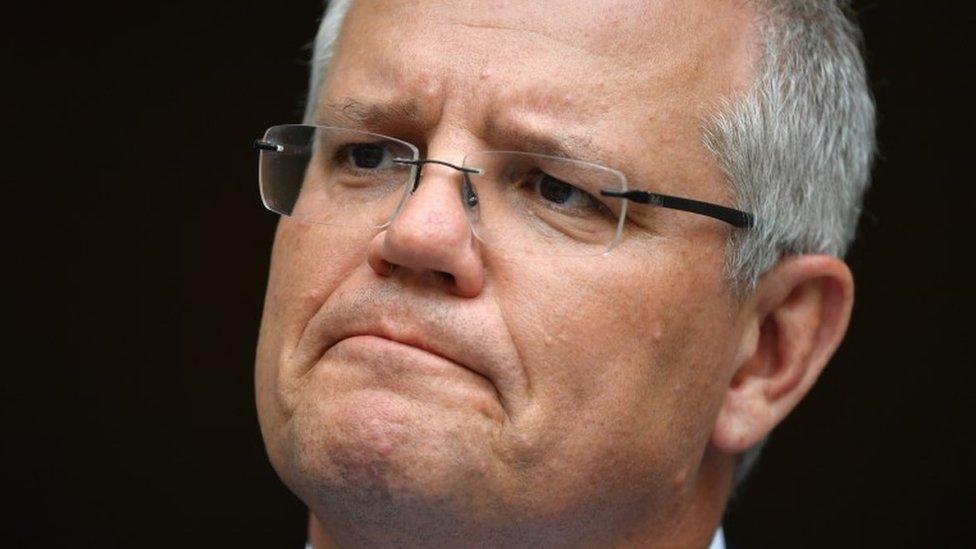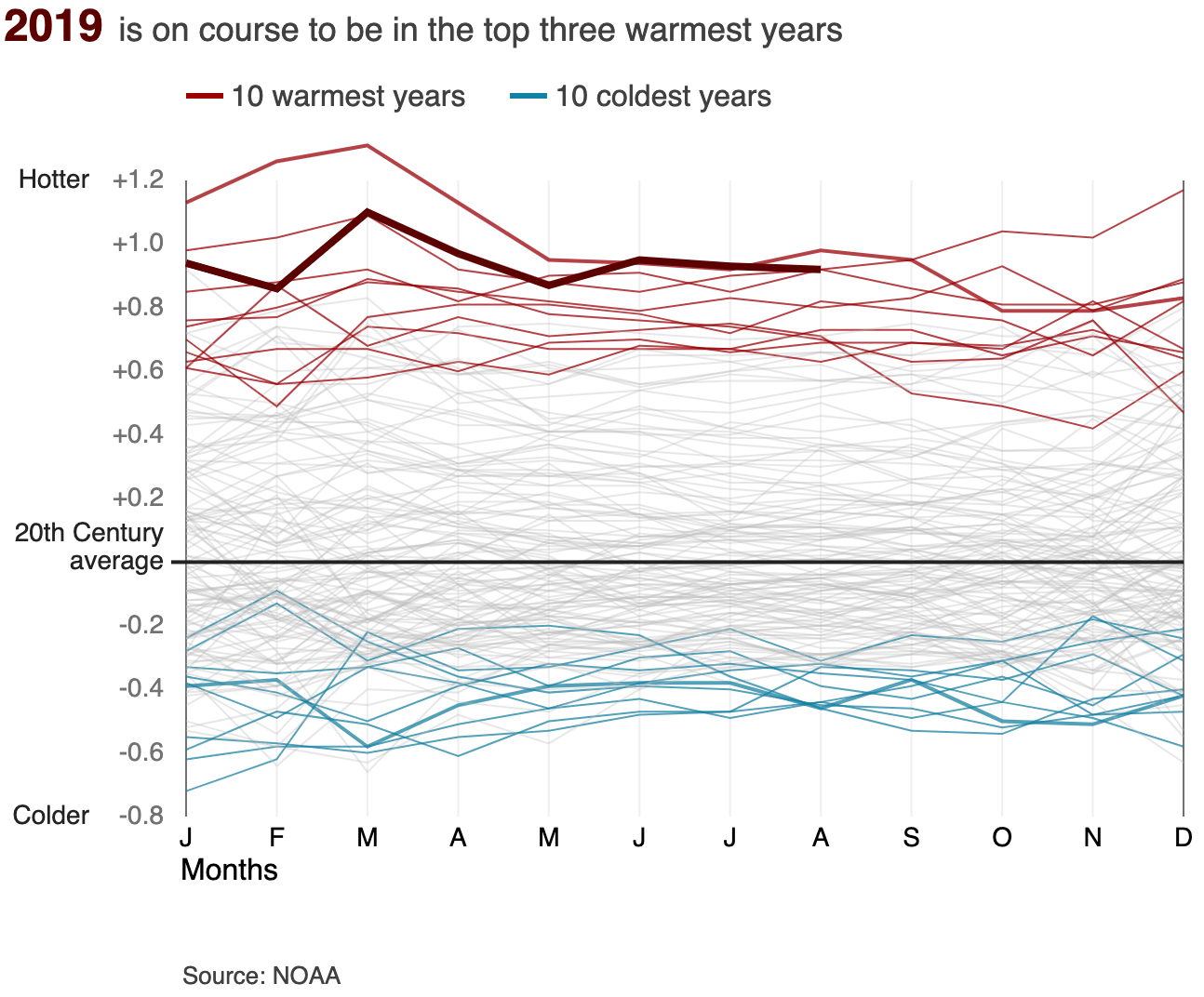Federer responds to climate change critics over Credit Suisse links
- Published
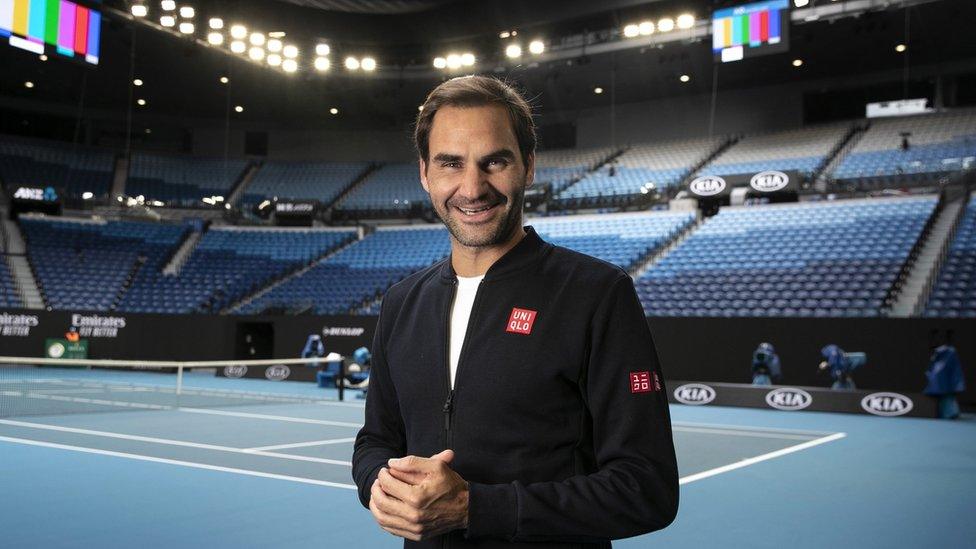
The climate change activists have urged Roger Federer to 'wake up'
Tennis star Roger Federer has responded to climate change critics - including campaigner Greta Thunberg - by saying he takes the issue very seriously.
Activists oppose Federer's sponsorship deal with Credit Suisse over its links to the fossil fuel industry.
Some appeared in court this week after refusing to pay a fine for playing tennis inside Credit Suisse offices in 2018 to highlight Federer's deal.
Federer did not address the deal directly in his statement.
The activists - most of them students - appeared in court in Renens, Lausanne, on 7 January to appeal against the fine. Some supporters gathered outside holding banners which read: "Credit Suisse is destroying the planet. Roger, do you support them?"
Greta Thunberg - the Swedish teenager who has become the public face of worldwide protests against government policies on climate change - joined the criticism against Federer and Credit Suisse when she retweeted a post from activists 350.org Europe.
Allow X content?
This article contains content provided by X. We ask for your permission before anything is loaded, as they may be using cookies and other technologies. You may want to read X’s cookie policy, external and privacy policy, external before accepting. To view this content choose ‘accept and continue’.
The post said loans by Credit Suisse to companies investing in fossil fuels were incompatible with action on climate change and urged Federer to "wake up".
In his response, the 20-time Grand Slam champion who is in Melbourne for the Australian Open, said: "I take the impacts and threat of climate change very seriously, particularly as my family and I arrive in Australia amidst devastation from the bushfires."
Climate change activists play tennis inside Credit Suisse offices
Federer said he had "a great deal of respect and admiration for the youth climate movement" and was "grateful to young climate activists for pushing us all to examine our behaviours and act on innovative solutions".
"We owe it to them and ourselves to listen. I appreciate reminders of my responsibility as a private individual, as an athlete and as an entrepreneur, and I'm committed to using this privileged position to dialogue on important issues with my sponsors."
For its part, Credit Suisse has said it is "seeking to align its loan portfolios with the objectives of the Paris Agreement [to combat climate change] and has recently announced in the context of its global climate strategy that it will no longer invest in new coal-fired power plants".
Allow Facebook content?
This article contains content provided by Facebook. We ask for your permission before anything is loaded, as they may be using cookies and other technologies. You may want to read Meta’s Facebook cookie policy, external and privacy policy, external before accepting. To view this content choose ‘accept and continue’.
Federer is taking part in a fundraising event next Wednesday in aid of relief efforts to address the Australian bushfires which have killed at least 28 people and destroyed thousands of homes since September.

More on the Australian bushfires:
Sydney bushfire smog 'like being a heavy smoker'
- Published10 January 2020
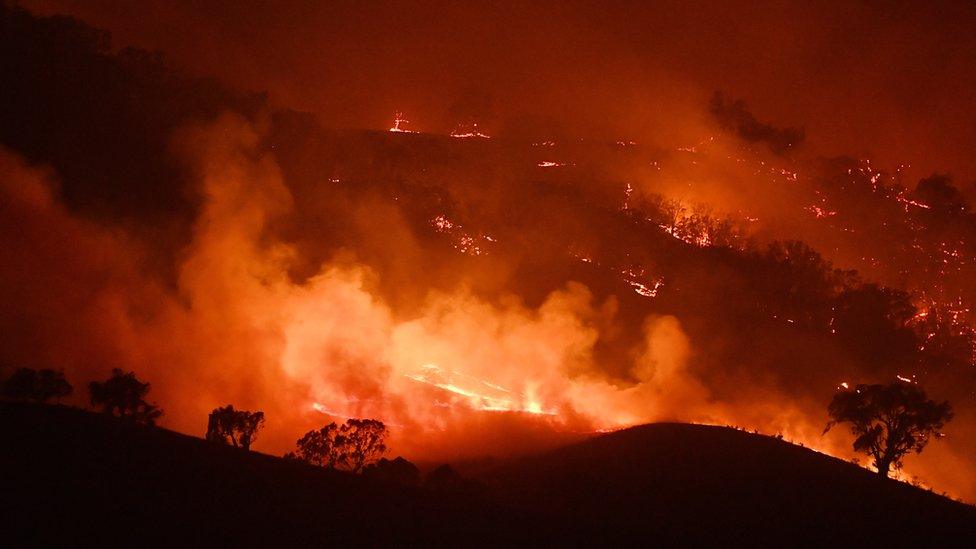
- Published14 January 2020
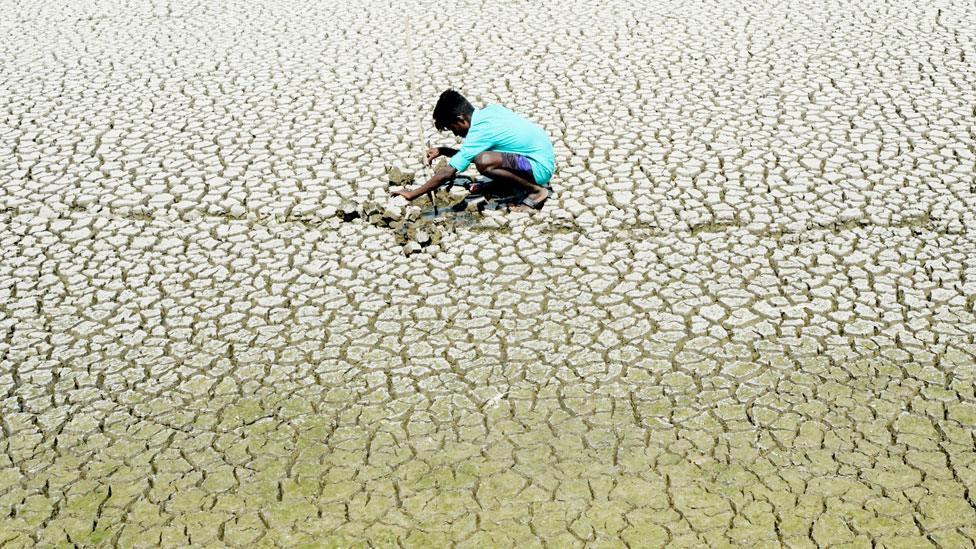
- Published12 January 2020
